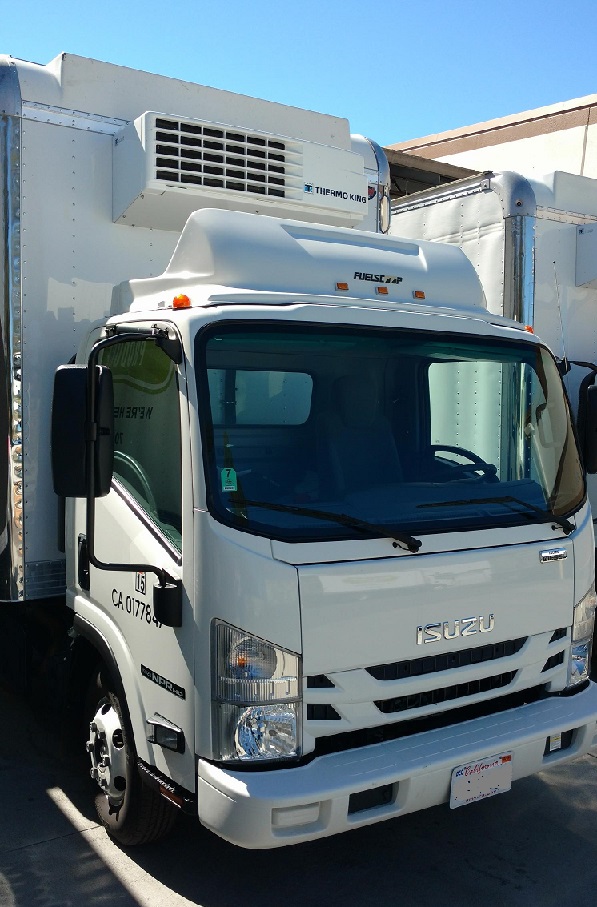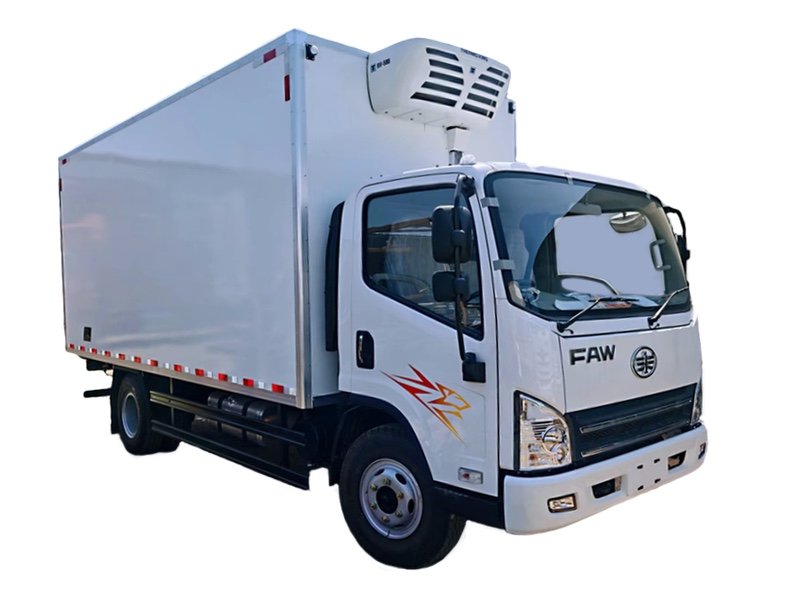Thermo King Transport Refrigeration: Top Quality Cooling for Cargo
Thermo King Transport Refrigeration: Top Quality Cooling for Cargo
Blog Article
Top Innovations in Transportation Refrigeration: Enhancing Performance and Safety And Security
The landscape of transport refrigeration is going through substantial change, driven by innovations intended at enhancing both effectiveness and safety and security. As these developments continue to advance, it is necessary to explore their ramifications on functional techniques and regulatory compliance, motivating a more detailed evaluation of exactly how they reshape the future of transportation refrigeration.
Smart Temperature Level Keeping An Eye On Equipments
In the world of transportation refrigeration, clever temperature tracking systems have arised as an essential development for making certain the integrity of temperature-sensitive products. These sophisticated systems utilize Net of Points (IoT) innovation to supply real-time information on temperature level variations, allowing drivers to preserve optimal conditions throughout the supply chain. By continuously tracking the temperature of chilled containers and lorries, firms can promptly recognize deviations that may jeopardize product high quality.

Furthermore, clever monitoring systems usually integrate automated notifies and alerts, permitting stakeholders to respond without delay to any type of potential issues. This aggressive method not just reduces the threat of perishing yet likewise boosts compliance with regulative criteria governing food safety and security and pharmaceutical transport.
The combination of information analytics within these systems also helps with anticipating upkeep, assisting drivers to predict potential equipment failures before they happen. This capacity reduces downtime and optimizes operational efficiency, eventually bring about cost savings.
Eco-Friendly Refrigerants
Smart temperature tracking systems play an essential role in keeping product high quality, but the performance of transport refrigeration additionally hinges on the option of refrigerants made use of. As environmental problems rise, the change towards eco-friendly cooling agents has ended up being essential. Standard refrigerants, such as hydrofluorocarbons (HFCs), are notorious for their high Worldwide Warming Possible (GWP), adding considerably to environment adjustment. In contrast, emerging choices like hydrocarbon-based refrigerants and hydrofluoroolefins (HFOs) present lower GWP alternatives, providing both performance and sustainability.
These environmentally friendly refrigerants not just decrease environmental impact but also align with worldwide laws focused on terminating damaging compounds. Their adoption can result in improved power performance, inevitably lowering operating expense for transportation refrigeration systems. Furthermore, making use of natural refrigerants, such as ammonia and carbon dioxide, has gained grip due to their excellent thermodynamic residential properties and reduced environmental footprint.
Purchasing environmentally friendly refrigerants is not simply a regulative compliance procedure; it stands for a critical choice that boosts brand name credibility and fosters consumer loyalty. thermo king truck refrigeration units. By prioritizing lasting methods, companies can add to a greener future while guaranteeing the integrity of transferred goods
Advanced Insulation Materials
Making use of advanced insulation products is essential for maximizing transportation refrigeration systems, as they dramatically improve energy effectiveness and keep regular temperature control. Standard insulation methods usually fall brief in protecting against thermal transfer, leading to increased energy consumption and rising and fall temperatures within chilled compartments.
Emerging materials such as vacuum cleaner insulated panels (VIPs) and aerogels use superior thermal resistance, enabling for thinner accounts without jeopardizing efficiency. VIPs, as an example, use a vacuum cleaner layer to minimize convective and conductive warm transfer, making them optimal for space-constrained applications. Aerogels, recognized for their lightweight and porous structure, give extraordinary insulation while dramatically reducing overall system weight.
Furthermore, incorporating phase change products (PCMs) into insulation systems can further maintain temperature levels throughout transportation. These products soak up and launch thermal power, effectively buffering versus external temperature variations.
The combination of these sophisticated insulation materials not only minimizes the functional expenses connected with power usage yet likewise prolongs the service visit this site right here life of temperature-sensitive products. As the transport refrigeration industry continues to progress, the adoption of ingenious insulation innovations will certainly be pivotal in enhancing both efficiency and safety in refrigerated transportation.
Automated Course Optimization
The efficiency of transportation refrigeration systems is substantially boosted via automated path optimization, which leverages sophisticated algorithms and real-time data to figure out the most reliable paths for distribution. By evaluating numerous aspects such as traffic patterns, climate condition, and delivery home windows, these systems can significantly minimize traveling time and fuel consumption.
Automated path optimization reduces human error and subjective decision-making, which can bring about inadequacies. This modern technology makes it possible for fleet supervisors to assign resources extra successfully, guaranteeing that refrigerated products preserve their required temperature throughout the trip. By optimizing courses, firms can additionally boost client contentment with prompt shipments.
Moreover, automated systems can adjust to unpredicted conditions, such as road closures or abrupt traffic spikes, permitting dynamic rerouting. This adaptability not only shields the integrity of temperature-sensitive items but likewise adds to general operational effectiveness.
Implementing automated path optimization can cause significant price savings while lowering the carbon footprint related to transport. As organizations significantly prioritize sustainability, this development sticks out as a critical part in modern transportation refrigeration, lining up functional objectives with environmental obligation. Eventually, automated route optimization represents a significant innovation in the mission for effectiveness and safety and security in transport refrigeration.

Real-Time Data Analytics
Automated course optimization dramatically take advantage of the assimilation of real-time data analytics, which provides essential insights into the performance of transportation refrigeration systems. By utilizing real-time data, transport operators can monitor temperature fluctuations and tools performance, making sure that perishable items are preserved within required specifications throughout transit. This positive method not only boosts the quality of the transported products yet likewise reduces the risk of wasting and loss.

In addition to enhancing performance, real-time analytics enhances safety by making certain compliance with regulative criteria for temperature level control. This not only secures public wellness however additionally fortifies a company's credibility - thermo king transport refrigeration. As the transportation refrigeration industry evolves, the combination of real-time information analytics becomes a cornerstone for driving innovation, sustainability, and operational visit this website quality
Verdict
In conclusion, the improvements in transportation refrigeration significantly boost both efficiency and safety within the market. Jointly, these advancements stand for a crucial development in transport refrigeration, making sure conformity with governing standards and advertising a greener future.
The landscape of transportation refrigeration is going through considerable makeover, driven by technologies intended at improving both effectiveness and safety.Smart temperature surveillance systems play an important function in maintaining item top quality, yet the performance of transportation refrigeration additionally hinges on the selection of cooling agents made use of. Their fostering can lead to improved energy effectiveness, ultimately minimizing operating costs for transport refrigeration systems. Ultimately, automated route optimization stands for a substantial development in the quest for efficiency and safety and security in transportation refrigeration.
In final thought, the advancements in transport refrigeration significantly boost both effectiveness and security within the industry.
Report this page